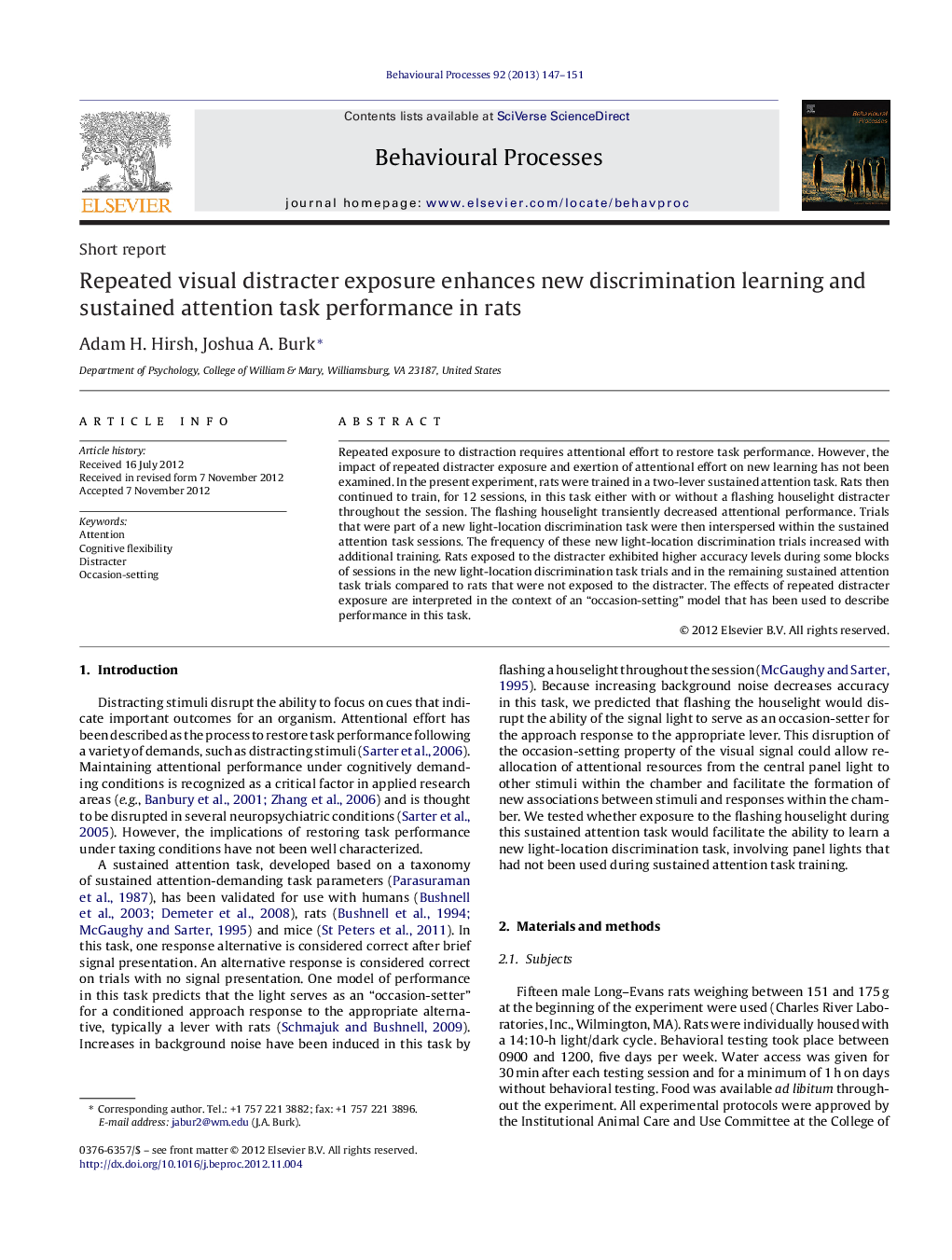| Article ID | Journal | Published Year | Pages | File Type |
|---|---|---|---|---|
| 2426963 | Behavioural Processes | 2013 | 5 Pages |
Repeated exposure to distraction requires attentional effort to restore task performance. However, the impact of repeated distracter exposure and exertion of attentional effort on new learning has not been examined. In the present experiment, rats were trained in a two-lever sustained attention task. Rats then continued to train, for 12 sessions, in this task either with or without a flashing houselight distracter throughout the session. The flashing houselight transiently decreased attentional performance. Trials that were part of a new light-location discrimination task were then interspersed within the sustained attention task sessions. The frequency of these new light-location discrimination trials increased with additional training. Rats exposed to the distracter exhibited higher accuracy levels during some blocks of sessions in the new light-location discrimination task trials and in the remaining sustained attention task trials compared to rats that were not exposed to the distracter. The effects of repeated distracter exposure are interpreted in the context of an “occasion-setting” model that has been used to describe performance in this task.
► Rats were trained in a sustained attention task and then exposed (or not) to a distracter. ► Attentional performance was transiently disrupted by the distracter. ► Rats were tested with light-location discrimination trials interspersed with attention task trials. ► Rats that were exposed to the distracter performed more accurately in the light-location discrimination and attention task during some blocks of trials.
